EXPERT
Issues
Locations
DOWNLOAD
The VRIC Monitor is a one-of-a-kind, monthly report from the Center for a Secure Free Society tracking extra-regional influence in Latin America. VRIC stands for Venezuela, Russia, Iran, China where Venezuela represents the Bolivarian Revolution and the broader Bolivarian Network. Likewise, Iran represents the Iranian Revolution and a growing presence of Middle Eastern actors in Latin America, namely its chief proxy, Hezbollah. The monitor is comprised of open source information selected by SFS researchers and fellows. This is not a complete list of media reports on VRIC presence in Latin America, but a snapshot of open-source media highlighting the major areas of VRIC influence.
OVERVIEW
Venezuela continues to be the central hub for the global, great power competition in the Western Hemisphere between Russia, Iran, China, and the United States. 2020 has already marked a series of international visits and diplomatic engagements by both the Maduro regime and Interim President Juan Guaidó. High-ranking Maduro officials have visited China, Iran, and Spain, while Guaidó made his first major international tour to Colombia, Europe, Canada, and the U.S. Meanwhile, the Trump administration reinforced its solidarity with Juan Guaidó presenting the Venezuelan constitutional president at the State of the Union speech on Capitol Hill in Washington D.C.
Earlier in January, Secretary of State Mike Pompeo participated in the Third Western Hemisphere Counterterrorism Ministerial Conference in Colombia, backing the official terrorist designation of Hezbollah by the Duque government. This was followed by a U.S.-Colombia joint airborne assault exercise at the Tolemaida Air Base in the Cundinamarca department of Colombia.
Heightened tension between the U.S. and Iran in the aftermath of the killing of Qods Force General Qassem Soleimani has brought the Islamic Republic to the forefront of the VRIC alliance. Recent visits from Russia and Venezuela have allowed Iran to round-up its key allies as the IRGC prepares for a possible retaliatory strike, perhaps through its proxy forces worldwide. In the midst of this tension, Nicolás Maduro sent a high-level delegation to Tehran, including his Foreign Minister Jorge Arreaza. This was followed by a recent state visit to Caracas by Russian Foreign Minister Sergei Lavrov as the Moscow-Caracas-Tehran nexus is becoming increasingly active.
Vladimir Putin’s support of the Maduro regime is portrayed by Moscow as an attempt to aid allies and extend Russian influence abroad, however, the core motivation seems to be to gain greater control over lucrative energy reserves. By some estimates, Russian oil giant, Rosneft, is controlling up to 70 – 80 percent of Venezuelan oil exports, prompting U.S. officials to admit they may have underestimated the extent of the Kremlin’s control in Venezuela. China’s influence in Venezuela, on the other hand, according to U.S. officials, seems to be waning. Yet, before visiting Iran, Maduro’s Foreign Minister Arreaza visited Beijing to showcase that the regime’s strategic alliance with the PRC is far from over. Meanwhile China continues to spread its influence throughout the region, particularly in Mexico and the Dominican Republic.
Addressing Russia, Iran, and China in Latin America, Admiral Craig Faller of U.S. Southern Command stated on Jan. 30, 2020 in the annual Posture Statement to the Senate Armed Services Committee of the 116th U.S. Congress:
“Malign state actors [VRIC and its allies] are part of a vicious circle of threats that deliberately erode stability and security in the region…..[requiring] the need to be clear-eyed about both the security threats we face now and in the near future, and the significant opportunities that await only with our initiative and engagement in the hemisphere [because] here is no other region we depend upon more for our prosperity and security, and with which we are more closely tied through bonds of family, trade, and geographic proximity, than Latin America and the Caribbean.”
MUST READS
- The Southern Command 2020 Posture Statement by Admiral Craig Faller, U.S. Southern Command before Senate Armed Services Committee
- Designating Hezbollah as a foreign terrorist organization is a legal tool interview of Joseph Humire by El Tiempo (content in Spanish, unofficial English translation here)
- Nisman, Iranian Terrorism, and Soleimani by Julian Schvlinderman, El Medio (content in Spanish)
- U.S. and Latin American Partners Discuss Hezbollah presence in Venezuela by Norma Gámez Torres, The Miami Herald
- Brasil, Bolivia, and Mexico, the allies of Iran in Latin America by Inder Bugarin, El Universal in Mexico (content in Spanish)
- Trump administration homing in on Iran-backed operations in Latin America by Guy Taylor, Washington Times
- How China Is Courting New Latin American Partners in Americas Quarterly by Robert Soutar
- How Russia and China benefit from helping Maduro by Jaime Moreno, Voice of America (content in Spanish)
- Russia’s Disinformation War Reaches Latin America, Challenging U.S. Influence by Frida Ghitis, World Politics Review
- Putin’s Push For Energy Dominance In Latin America by Matthew Smith, Oil Price
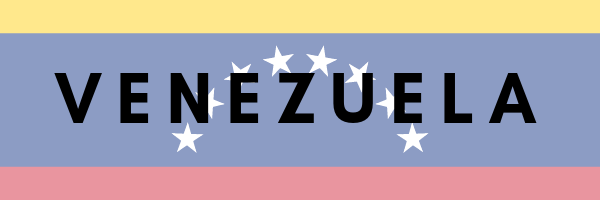
The Maduro regime and the interim government of Juan Guaidó continue to fight for power in Venezuela, as both sides have embarked on international tours to shore up their alliances. Despite his travel restrictions, Interim President Juan Guaidó left Venezuela to meet with U.S. Secretary of State Mike Pompeo in Colombia for a counterterrorism ministerial conference in mid-January, then traveled to Europe, Canada, and the U.S, culminating with his first visit to Washington D.C. to meet with President Trump. In the midst of his trip, allegations of ties to corrupt Venezuelan businessmen surfaced, all of which President Guaidó has denied.
The Maduro regime also made its international rounds. Shortly after the death of Gen. Qassem Soleimani, Maduro’s Foreign Minister Jorge Arreaza made an official visit to Beijing, followed by a visit to Tehran where he was accompanied by a high-ranking delegation to meet with President Rouhani. Arreaza left three days later, but part of his high-ranking delegation remains in Iran. The Maduro regime has also appealed to non-traditional VRIC allies, exemplified when Venezuelan Vice President Delcy Rodriguez made an airport stopover in Spain at the same time Juan Guaidó was visiting the country.
Mexico and Argentina continue to be staunch allies within the regional Bolivarian network, with Mexico supporting Argentina’s race for leadership of the Inter-American Development Bank and Argentina’s hosting of former Bolivian President Evo Morales. However, Morales is becoming a burden to Argentina; Evo’s statement regarding the creation of armed militias in Bolivia similar to Venezuela caused a stir in the country. Though Evo was forced to retract the statement, the threat could become a reality since Morales has recently left Argentina for Cuba where he will undoubtedly coordinate his next actions with Argentine Vice President Cristina Kirchner who has reportedly been in Havana since February 6th.
VENEZUELA AID TRACKER
| United States | $213 million dollars |
| Argentina | Help unit |
| Canada | $53 million dollars pledged |
| Chile | 17 tons of food & medical supplies |
| China | 200 tons of medicine & supplies |
| Cuba | Medical aid to transplant patients |
| EU | €65 million euros + €120 million euros pledged |
| Germany | €5 million euros |
| Iran | Unspecified pledge & medical aid |
| Italy | €2 million euros & medical aid to transplant patients |
| New Zealand | $500,000 dollars |
| Palestine | Surgical team |
| Russia | 335 tons of food & medical supplies |
| South Korea | $3 million dollars |
| Spain | €2 million euros |
| Sweden | $7 million dollars |
| Taiwan | $500,000 dollars |
| Turkey | Medical aid to transplant patients |
| UAE | Dh10 million |
| UK | £6.5 million pounds |
- The former president of Spain José Luis Rodríguez Zapatero met with Nicolás Maduro, at the Miraflores Palace in Caracas, without giving reason for the surprise meeting. – El Nuevo Herald on 07-FEB (content in Spanish)
- Venezuelan opposition leader Juan Guaidó was honored at President Trump’s State of the Union address after receiving an invite from the White House. – Fox News on 05-FEB
- An ally of Maduro has hired a Washington lobbyist whose business has boomed under the Trump administration as part of a $12.5 million effort to ease sanctions and reset bilateral relations as the U.S.-backed campaign to oust the socialist leader stalls. – AP News on 27-JAN
- Maduro’s parliamentary coup sought to revive Venezuela’s collapsed oil industry. The regime leader tried to impose Luis Parra as the head of the National Assembly to secure the approval of contracts with Moscow and Beijing. – Infobae on 26-JAN (content in Spanish)
- Juan Guaidó, the man who one year ago launched a bid to oust Nicolás Maduro, paid a visit to Spain, where a thriving community of Venezuelans and a storm among Spanish political parties awaited him. – ABC News on 25-JAN
- Spanish Transport Minister Jose Luis Abalos said he met Maduro’s Vice President Delcy Rodriguez, briefly at the airport after midnight on January 20th. The European Union has imposed a travel ban on Rodriguez, who didn’t step off the tarmac to avoid violating the ban. – Reuters on 24-JAN
- Alejandro Betancourt, a wealthy Venezuelan businessman under criminal investigation in the United States introduced Rudy Giuliani, President Donald Trump’s personal lawyer, to the father of Venezuela’s opposition leader, Juan Guaidó. Guaidó’s father denies the claim and says there is no relationship. – Reuters on 22-JAN
- Intelligence police raided the office of Juan Guaidó on January 21st, while the U.S.-backed opposition leader was traveling in Europe seeking to bolster support for his campaign to oust Maduro. – WFTV Orlando on 21-JAN
- The U.S. government has reportedly extended business licenses to American companies in Venezuela to avoid ceding space to Russia or China. In October 2019, the U.S. Treasury Department renewed a license that allowed companies like Chevron to continue operating in Venezuela for another three months; however, the reason behind this decision was unclear. – PanAm Post on 21-JAN
- The leader of Venezuela’s political opposition, Juan Guaidó, traveled secretly to Colombia where he will meet with officials from the U.S. and regional allies as he seeks to rally international support in his bid to oust authoritarian Nicolás Maduro. – The Wall Street Journal on 19-JAN
- Maduro gave to Russia and Iran the exploitation of Thorium, a mineral used for missiles. The public official Americo de Grazia says that Russian soldiers and Hezbollah members would be in charge of the minerals in the national park Canaima. – PanAm Post on 17-JAN (content in Spanish)
- Juan Guaidó announced on Twitter that he will “rescue” the state channel Telesur – which also covers news from Latin America – “to put it at the service of truth, plurality, Venezuelan and regional democracy.” – The University of Texas at Austin Journalism in the Americas Blog on 15-JAN
- The tug of war over Venezuela’s National Assembly intensified on January 15th as pro-government forces attacked lawmakers allied with opposition leader Juan Guaidó, preventing them from holding a session in the legislative palace. – Washington Post on 15-JAN
THE BOLIVARIAN NETWORK
- El Salvador’s Armed Forces and National Civil Police troops, carrying rifles and dressed in battle fatigues and tactical gear, briefly occupied the country’s parliament in a literal show of force supporting legislation to better equip them after President Nayib Bukele failed to push through approval of a $109 million equipment loan. – NPR on 10-FEB
- Bolivia’s former president, Evo Morales traveled to Cuba after his two-month stay in Argentina. It is the first time that he has left Buenos Aires since arriving, but his second visit to Cuba since he resigned from the government last November. – La Nacion on 10-FEB (content in Spanish)
- Argentine Vice President Cristina Kirchner traveled to Cuba to visit her daughter, leaving executive power to Senator Claudia Ledesma Abdala for one day until President Alberto Fernandez returned to the country. – Perfil on 06-FEB (content in Spanish)
- Patricia Hermosa, the former chief of staff for Evo Morales that was responsible for registering his candidacy to the legislature, will be detained for 6-months prior to her trial in an investigation over alleged crimes of sedition and terrorism. – El Nuevo Herald on 03-FEB (content in Spanish)
- Mexican President Andres Manuel Lopez Obrador’s administration plans to support Argentina in the race to lead the Inter-American Development Bank, a key Washington-based multilateral lender, in another sign of political rapport between the region’s two most important left-wing governments. – Bloomberg News on 31-JAN
- Former Bolivian President Evo Morales stated that he wants to legally return to Bolivia and did not rule out the possibility of running as a senator in the elections on May 3rd. – EFE on 31-JAN (content in Spanish)
- Luis Arce, the presidential candidate for Evo Morales’s Movement for Socialism party, was immediately served with a subpoena as he returned to Bolivia following a self-imposed exile in Mexico. Arce, who is due to stand for MAS in the May 3rd election, is accused of a breach of duties and embezzlement during his tenure as economy minister. – Yahoo News on 28-JAN
- The Nicaraguan Center for Human Rights (Cenidh) presented a new bimonthly report on the human rights situation in Nicaragua, which includes the multiple violations committed by Daniel Ortega’s regime during November and December of 2019. – Confidencial on 27-JAN
- Evo Morales making use of state terrorism, attempts to create a “National Guard” that would include members of the FARC from Colombia and the Shining Path of Peru. – Jhamil Moya on 24-JAN
- Bolivia has suspended its diplomatic relations with Cuba, the foreign ministry of Bolivia’s interim government said, marking a stark change in foreign relations sparked by a dispute over Cuban doctors in the country. – New York Times on 24-JAN
- Evo Morales, who is looking to steer his party, MAS, to a new election win from afar this year, held a “celebratory” event to mark the end of his presidential term from exile in Buenos Aires. – Reuters on 22-JAN
- Interview in La Paz, Bolivia of senior advisor to President Trump, Mauricio Claver-Carone, on US-Bolivia relations after the departure of Evo Morales – Pagina Siete on 19-JAN (content in Spanish)
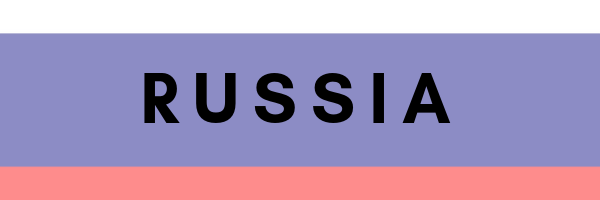
Though Russian presence in Latin America is strongly characterized by military support, Moscow constitutes a much larger role in the region. Admiral Craig Faller of U.S. Southern Command describes Russia as the “spoiler” – subverting the U.S in the Western Hemisphere and meddling in regional affairs via spreading false information through social media campaigns. As the “spoiler,” Russia also undermines the U.S. in public relations and diplomatic overtures in the region, particularly in Venezuela. Russian Foreign Minister Sergei Lavrov visited Latin America and the Caribbean this month, starting in Cuba, followed by Mexico, and finishing in Venezuela. Russia’s most forward-facing ally, Nicolás Maduro, was recently awarded recognition of the “Order of Lenin,” the highest distinction of communism from the Kremlin, as Moscow is expected to takeover PDVSA, the Venezuelan state oil industry. In concordance with its official engagement in Venezuela, and with other members of the Bolivarian network, Moscow is also pursuing closer diplomatic relations with U.S. allies in Latin America, such as Brazil, recently stating its desire to include Brazil in the UN Security Council.
- Amid threats from Washington, Russian Foreign Minister Sergey Lavrov promised to keep providing economic and military aid to Venezuela – Miami Herald on 07-FEB
- Russian Foreign Minister Sergey Lavrov heads to Cuba on the first leg of a three-day Latin American tour. He will meet with Cuban counterpart Bruno Rodriguez in Santiago de Cuba where talks between the two are expected to focus on building energy ties. – Foreign Brief on 05-FEB
- Alicia Castro, who was Argentine ambassador in Caracas during Nestor Kirchner’s administration and in London during Cristina Fernández de Kirchner’s administration, will be the representative of Argentina in Moscow. Her name was not among those that the Executive Power sent to the Senate to approve their designations, and that is why in diplomatic circles it was speculated that her nomination had fallen definitively. – Infobae on 02-FEB (content in Spanish)
- Russian Foreign Minister Sergei Lavrov visited Latin America in the first week of February. He started in Cuba and passed through Mexico, to finish in Venezuela. Lavrov met with Cuban Foreign Minister Bruno Rodríguez, Mexican Foreign Minister Marcelo Ebrard, and Venezuelan Vice President Delcy Rodriguez and Lavrov’s counterpart Jorge Arreaza – Voice of America on 30-JAN (content in Spanish)
- State media reports that Russian Foreign Minister Sergey Lavrov had negotiations with his Mexican counterpart Marcelo Ebrard during his visit to Mexico. The sides were expected to exchange views on pressing international and regional issues and coordinate our countries’ approaches to various issues on the global agenda with a view to further strengthening bilateral cooperation at multilateral platforms – TASS on 30-JAN
- During an economic and political forum in New Delhi, India, Russia’s Foreign Minister Sergei Lavrov asked to include India, Brazil, and another African country on the U.N.’s Security Council. – El Diario on 15-JAN (content in Spanish)
- The Trump administration’s bid to replace Venezuela’s authoritarian leader Nicolás Maduro hit a roadblock after a meeting with Russian officials in Rome last year—and has never recovered. – Wall Street Journal on 27-JAN
- Russia has handed Mexico an updated draft agreement on visa-free travel, with the latter currently considering it, Viktor Koronelli, the Russian ambassador in Mexico City, told Sputnik. – Urdu Point on 24-JAN
- Maduro proudly accepted the “Order of Lenin,” a controversial distinction granted by the Russian regime during an event held at Los Caobos Park in Caracas. – Venezuela al Día on 24-JAN (content in Spanish)
- Watching political unrest explode across South America this fall, officials at the State Department noticed an eerily similar pattern in anti-government protests that otherwise had little in common. In Chile, nearly 10% of all tweets supporting protests in late October originated with Twitter accounts that had a high certainty of being linked to Russia. – Chicago Tribune on 19-JAN
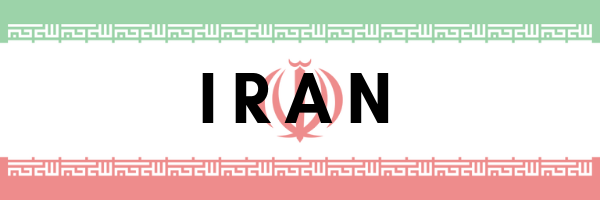
As reported in our last Monitor, VRIC allies extended a series of public official statements of sympathy and solidarity for Iran in the aftermath of Gen. Qassem Solemani’s death. This was accompanied by heightened diplomatic engagement. Maduro’s Foreign Minister Jorge Arreaza embarked on a 3-day trip to Tehran with a high-ranking delegation from Venezuela only three weeks following Soleimani’s death, where he met with the Iranian president and foreign minister, to boost bilateral cooperation between the two nations. Few details about the trip have been reported, but sources suggest that some members of the high-ranking delegation are still in Iran. As the Maduro regime went to Tehran, U.S. Secretary of State Mike Pompeo visited Bogota to participate in the Third Western Hemisphere Counterterrorism Ministerial Conference, where Colombia and Honduras designated Hezbollah as a terrorist organization, and to meet with Venezuela’s Interim President Juan Guaidó. At the counterterrorism conference, the President of the Venezuelan National Assembly’s Finance Commission, Carlos Paparoni, showed more evidence of Hezbollah’s ties to the Maduro regime, some of which was presented publicly at an event at the Atlantic Council in Washington D.C. the following week.
Iran-Argentina relations have been put back in the spotlight after a recently released Netflix documentary series about the death of AMIA special prosecutor Alberto Nisman that casts a firestorm in Argentina for sowing doubt on whether Nisman was killed or committed suicide. Argentine President Alberto Fernandez is featured in the documentary, prior to being elected president, and states “to this day, I doubt he [Nisman] committed suicide,” contradicting the long-standing insinuation of his Vice President Cristina Kirchner.
- Two Iranians were arrested in the Ecuadorian capital of Quito after attempting to travel to Spain with fake Israeli passports. – Jerusalem Post on 11-FEB
- It’s not every day that a Netflix series elicits public comment from presidents. But in Argentina, the true-crime docuseries “Nisman: The Prosecutor, the President and the Spy” has done just that. From two presidents. – Los Angeles Times on 28-JAN
- State media reports that representatives of social and political movements of Venezuela and political missions from other countries, who had participated in the World Anti-Imperialist Congress, voiced solidarity with Iran over U.S. sanctions. – IRNA on 26-JAN
- Venezuelan strongman Nicolas Maduro’s partnership with Hezbollah has increased the risk that Iran will sponsor terrorism in Latin America, according to an envoy for the socialist leader’s chief rival. – The Washington Examiner on 22-JAN
- State media reports that Venezuelan Foreign Minister Jorge Arreaza met with Iranian President Hassan Rouhani on January 21 in Tehran, as part of a three-day trip to Iran. – Republic World on 21-JAN
- State media reports that Iran and Venezuela strengthened their relations of friendship and cooperation, with the official visit concluded by Venezuelan Foreign Minister Jorge Arreaza to this country. – Prensa Latina on 21-JAN
- Iranian state media reports Iranian Foreign Minister Mohammad Javad Zarif and his Venezuelan counterpart Jorge Arreaza discussed bilateral and international cooperation between the two nations. – Iran Daily on 20-JAN
- Five years after the mysterious death of Argentine prosecutor Alberto Nisman after he accused then-president Cristina Kirchner of a cover-up in the 1994 bombing of a Jewish center, a Netflix documentary has revived debate in the country still bitterly divided over the case. – Times of Israel on 17-JAN
- Except for Brazil and Venezuela, most Latin American countries have stayed neutral over the attack that killed Iran’s Islamic Revolution Guards Corps (IRGC) Qods Force (QF) General Qassem Soleimani. – IHS Markit on 17-JAN
- The director of the six-part Netflix documentary probing the death of Alberto Nisman explains why he believes that spy Antonio ‘Jaime’ Stiuso is crucial to the case, in this exclusive interview with Edi Zunino for Perfil. – Buenos Aires Times on 17-JAN
TURKEY
- State media reports that the Paraguayan Foreign Minister announced Paraguay’s ties with Turkey will strengthen through further cooperation. – Daily Sabah on 22-JAN
HEZBOLLAH TERROR DESIGNATIONS
- Evidence of Hezbollah’s ties to the Maduro regime that Secretary of State Mike Pompeo brought to the counterterrorism conference in Bogota included ties to the ELN and FARC dissidents and payments from Venezuela to Beirut. – El Tiempo on 26-JAN (content in Spanish)
- Senior State Department Official Readout of Recent Counterterrorism Ministerial in Bogota, Colombia. – U.S. Department of State on 23-JAN
- Third Hemispheric Ministerial Conference to Combat Terrorism Joint Communique – Brazilian Ministry of Foreign Affairs on 20-JAN
- The Honduran government has formally declared Iranian-backed Lebanese group Hezbollah a terrorist organization, a top security official said. – Yahoo News on 20-JAN
- Colombian President Ivan Duque says, “we have seen the presence of Hezbollah cells in countries such as Venezuela, with consent and cooperation from the dictatorship of Nicolás Maduro.” – El Tiempo on 20-JAN (content in Spanish)
- Secretary Michael Pompeo’s remarks at the Opening Plenary of the Third Western Hemisphere Counterterrorism Ministerial – U.S. Department of State on 20-JAN
- U.S. Secretary of State Mike Pompeo stressed the need to increase surveillance efforts against the financial activities of Hezbollah and its Iranian-linked partners during the Third Hemispheric Counterterrorism Ministerial Conference in Bogota. – Infobae on 20-JAN (content in Spanish)
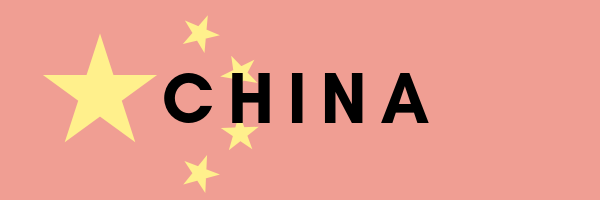
Although indications of China’s economic drawdown in Venezuela have implied their waning influence, January has shown that PRC support to Maduro is not pegged on just economic support. In a visit to Beijing, Venezuelan Foreign Minister Jorge Arreaza reinforced that China is still a “fundamental ally.” Beijing is also fostering its relationships with Venezuela’s allies in the Bolivarian network, as well as with U.S. allies. China continues to use the Belt and Road Initiative to secure more investment in the Caribbean and Argentina while subverting the U.S. by extending preferential trade partnerships to Brazil and Mexico. However, these partnerships currently pose a risk to Latin America, as the Coronavirus threatens to be a global health crisis. China boasts a large diaspora throughout Latin America; as a result, numerous countries have halted all travel from China to prevent any spread of the disease. The virus poses a particular risk for Venezuela, where health and medical resources are severely depleted.
- Brazilian military drew up several scenarios of possible conflicts for 2040 in South America, including an attempt by China to install a military base in Argentina in 2034 and an advance of “enemy” France to create an indigenous republic in the Amazon Brazil. – La Nacion on 07-FEB (content in Spanish)
- A senior leader of one of the Dominican Republic’s most prominent conservative political parties told Breitbart News he is concerned the island nation, just a little over 200 miles from the United States, could become a “hostage” in China’s growing bid for hegemony. – Breitbart on 01-FEB
- To prevent the spread of coronavirus, Guatemala and El Salvador have announced blanket restrictions on people who have recently been in China. Costa Rican officials said they will monitor transit points such as airports, but for now will allow Chinese travelers to enter the country. – U.S. News on 31-JAN
- The flow of oil traveling from Latin America to China has stopped in the wake of the deadly outbreak of the coronavirus that has sunk oil prices to three-month lows, with no oil making its way from Brazil or Colombia to China since last week, according to Bloomberg. – Oil Price on 30-JAN
- China’s Belt and Road Initiative (BRI) is jumpstarting new infrastructure and energy development projects in Latin America, while opening the door for more Chinese lending in the region. – Reuters on 28-JAN
- Brazil meatpacker JBS SA said that it had signed a memorandum of understanding with Hong Kong’s WH Group to supply up to 3 billion reais ($717.26 million) of fresh beef, poultry and pork per year to the Chinese market. – Reuters on 27-JAN
- For years, as China has spent heavily in Latin America. Colombia, Washington’s closest regional ally, has stood out as the major country with the smallest Chinese investment. That’s changing, and fast. – Bloomberg on 24-JAN
- The seizure of tons of stolen copper near Santiago, Chile — set to be sent illegally to China — suggests that increasingly daring robberies may be fueled by the Asian powerhouse’s thirst for the mineral. – InSight Crime on 23-JAN
- Mexico should move to deepen its economic ties with China after U.S. congressional approval of a new North American trade deal, a senior Mexican official said. – Reuters on 19-JAN
- In Beijing, Foreign Minister Jorge Arreaza reaffirmed Venezuela’s “comprehensive strategic” relationship with China, calling the country “a fundamental ally.” – EFE on 17-JAN (content in Spanish)
- Pereira, the Brazilian manager of the China-Brazil Earth Resources Satellite (CBERS) program, told the Global Times, “The space partnership with China is quite wide, including the joint development of satellites, the exchange of researchers and students, and the research partnerships in the areas of space science and ionosphere.” – Global Times on 16-JAN
- The Trump administration’s envoy on Venezuela said China appears to be scaling back economic support for President Nicolas Maduro, and Beijing acknowledged a diminishing role largely due to U.S. sanctions against the OPEC nation. – Reuters on 15-JAN
- Chinese banks are providing $600 million in financing for the construction of an oil refinery at the Mexican port of Dos Bocas in the southeastern state of Tabasco, China’s ambassador to Mexico said. – Reuters on 13-JAN
- At least three Chinese automakers are preparing to produce vehicles in Mexico or expand existing operations, the Mexican ambassador to China said, in what would be a boost to one of the Latin American country’s top export industries. – Reuters on 13-JAN

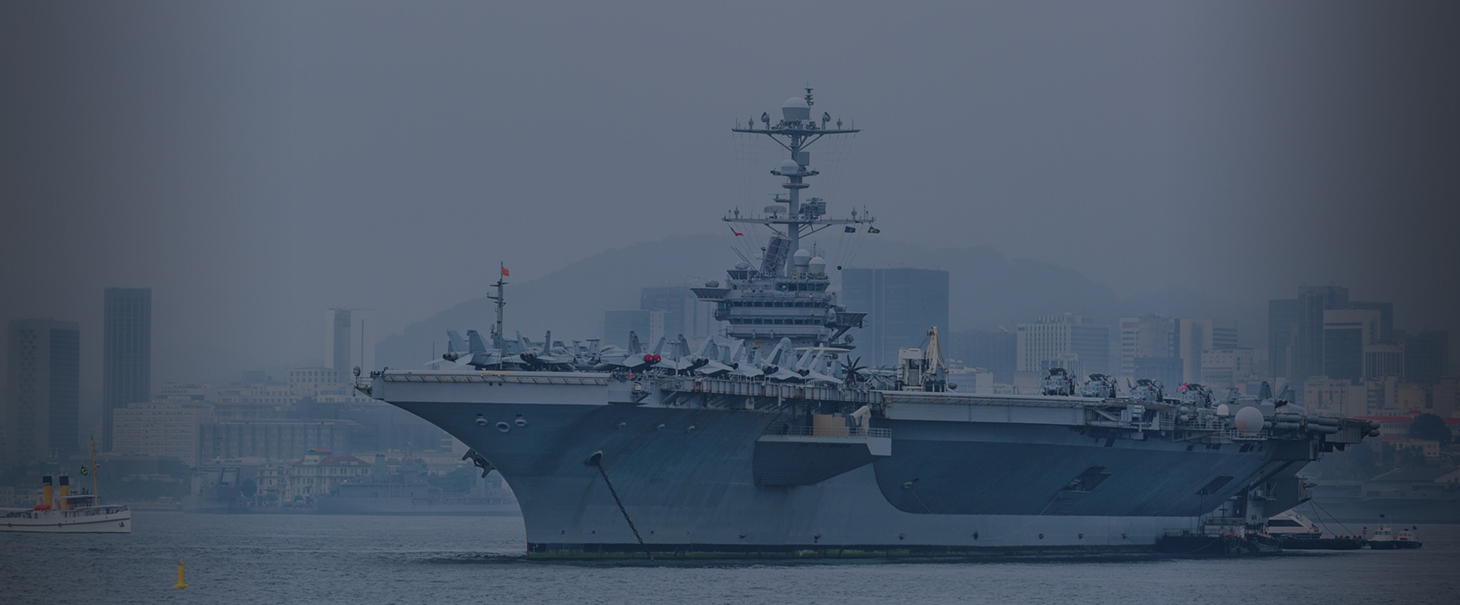
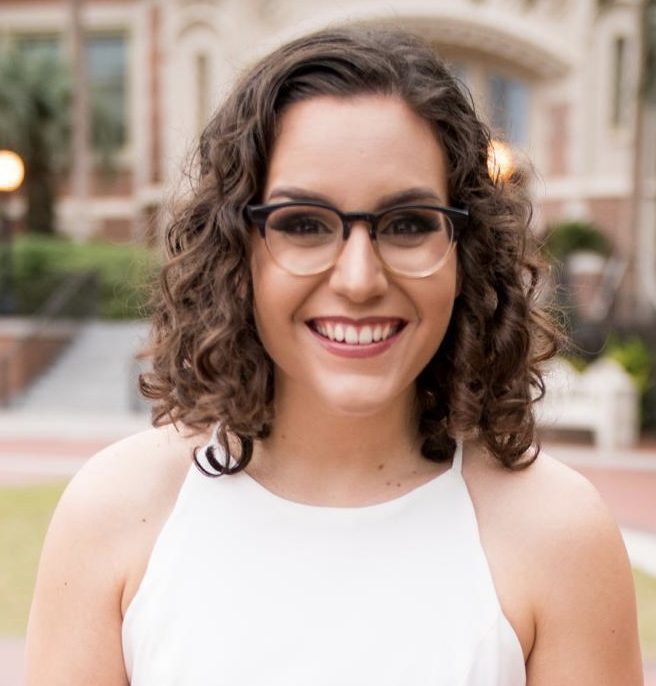 Christina Armes Hunter
Christina Armes Hunter